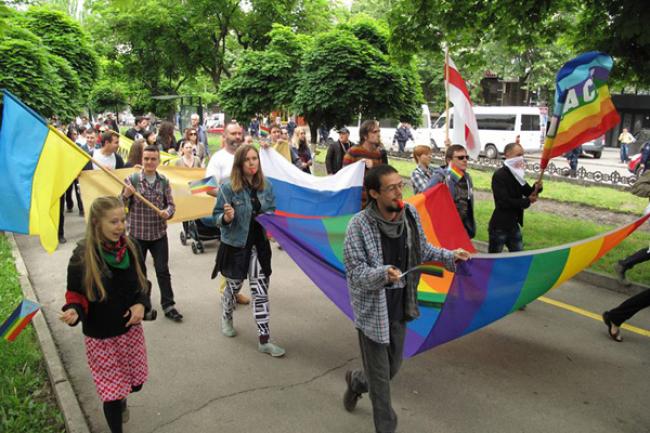25 Oct 2014

“Everyone is entitled to equality before the law, without any discrimination, and it is the State’s responsibility to protect all individuals from discrimination. We thus urge the authorities not to pass this law,” Ravina Shamdasani, spokesperson for the Office of the High Commissioner for Human Rights (OHCHR), told reporters in Geneva.
Shamdasani said the proposed law would violate fundamental human rights, including the rights to liberty, security and physical integrity and to freedom of expression, peaceful assembly and association.
“These rights are protected by human rights treaties ratified by Kyrgyzstan,” she pointed out.
UN human rights mechanisms have previously expressed concerns about discrimination and violence against LGBT people in Kyrgyzstan and the lack of a response from the Kyrgyz authorities.
“The draft law adds to those concerns and may lead to further violations,” noted Shamdasani, adding that its adoption would also go against the commitments made by Kyrgyzstan during the 2010 review of its record by the UN Human Rights Council.
The UN has documented that similar laws elsewhere have had negative impacts on human rights, including increased attacks and discrimination against LGBT individuals, notably children and youth.
The law would also likely have a negative impact on national public health responses, in particular among people who live with HIV and those most at risk of contracting the virus, as well as on access to information about women’s reproductive rights.
OHCHR also voiced concern about another bill currently going through Kyrgyzstan’s Parliament, which risks creating a difficult environment for the operation of civil society groups.
“We are closely following developments on this draft law and call on the authorities to take measures to ensure that Kyrgyz national legislation fully complies with international human rights standards,” Shamdasani stated.
Lesbian, Gay, Bisexual, Transgender and Intersex (LGBTI) pride march. Photo: OHCHR/Joseph Smida